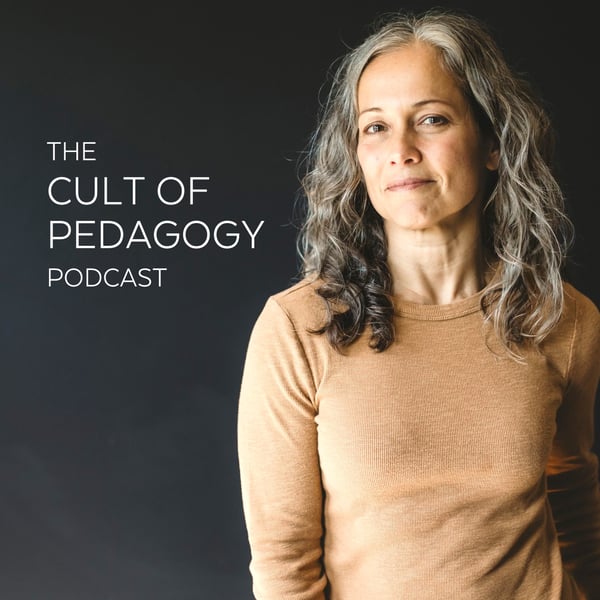EduTip 26: Give lots of quizzes.
The Cult of Pedagogy Podcast
Jennifer Gonzalez
4.8 • 2.4K Ratings
🗓️ 23 February 2025
⏱️ 5 minutes
🧾️ Download transcript
Summary
One of the best-kept secrets in teaching is that frequent quizzing leads to better learning. If you can incorporate more ungraded or low-stakes quizzes into your instruction, there's a good chance your students will start remembering more of what they're learning. Learn about the research behind this phenomenon in this EduTip.
-------------------
Thanks to Explore Learning for sponsoring this tip. You can find written and video versions of these at cultofpedagogy.com/edutips.
Transcript
Click on a timestamp to play from that location
| 0:00.0 | Welcome to EduTips, a side project of the Cult of Pedagogy podcast where I share one quick idea to make your teaching better. |
| 0:07.8 | This is Jennifer Gonzalez and I am your host. |
| 0:10.9 | Edutip 26 is sponsored by Explore Learning. |
| 0:15.1 | Are you looking to supplement your STEM instruction with technology you can trust? |
| 0:19.8 | Explore Learning K-12 STEM solutions put |
| 0:22.8 | data privacy first and are certified safe for student data with high standard data security measures. |
| 0:29.9 | That means peace of mind when you teach. From early science exploration to foundational math skills |
| 0:36.2 | like math fact fluency and fractions to virtual labs and simulations where students take on the role of STEM professionals. |
| 0:44.3 | Explore learning develops ed tech for the most critical STEM learning needs. Research-backed and game-based. |
| 0:52.3 | Explore learning products engage students while building the key skills needed to succeed, all while safeguarding student data. |
| 1:00.8 | Discover how their award-winning products are prioritizing data privacy by visiting cultivepedagogy.com slash explore learning. |
| 1:09.9 | Today's edutip is give lots of quizzes. One of the best kept secrets |
| 1:15.5 | in teaching is that frequent quizzing leads to better learning. I'm not talking about formative |
| 1:21.3 | assessment here. This is quizzing as a learning strategy. A growing body of research is showing that when students are |
| 1:29.3 | regularly tested on the material that they're learning, they learn it better than they do through |
| 1:34.5 | many other forms of review, including rereading, note-taking, or concept mapping. Here's an example. |
| 1:42.0 | A group of university students read 40 pages of textbook materials weekly. |
| 1:47.0 | After each reading assignment, they either re-read 10 selected facts or took a short-answered |
| 1:54.0 | with corrective feedback. Over six weeks, students took two multiple-choice exams assessing 60 of the facts that were just |
| 2:02.8 | re-read and 60 tested facts. Students scored 10% better on the facts they had previously been |
| 2:10.4 | tested on than they did on the facts they had just re-read. There are loads of other studies |
| 2:16.2 | like this one, where two groups consume the same |
... |
Transcript will be available on the free plan in -35 days. Upgrade to see the full transcript now.
Disclaimer: The podcast and artwork embedded on this page are from Jennifer Gonzalez, and are the property of its owner and not affiliated with or endorsed by Tapesearch.
Generated transcripts are the property of Jennifer Gonzalez and are distributed freely under the Fair Use doctrine. Transcripts generated by Tapesearch are not guaranteed to be accurate.
Copyright © Tapesearch 2025.

